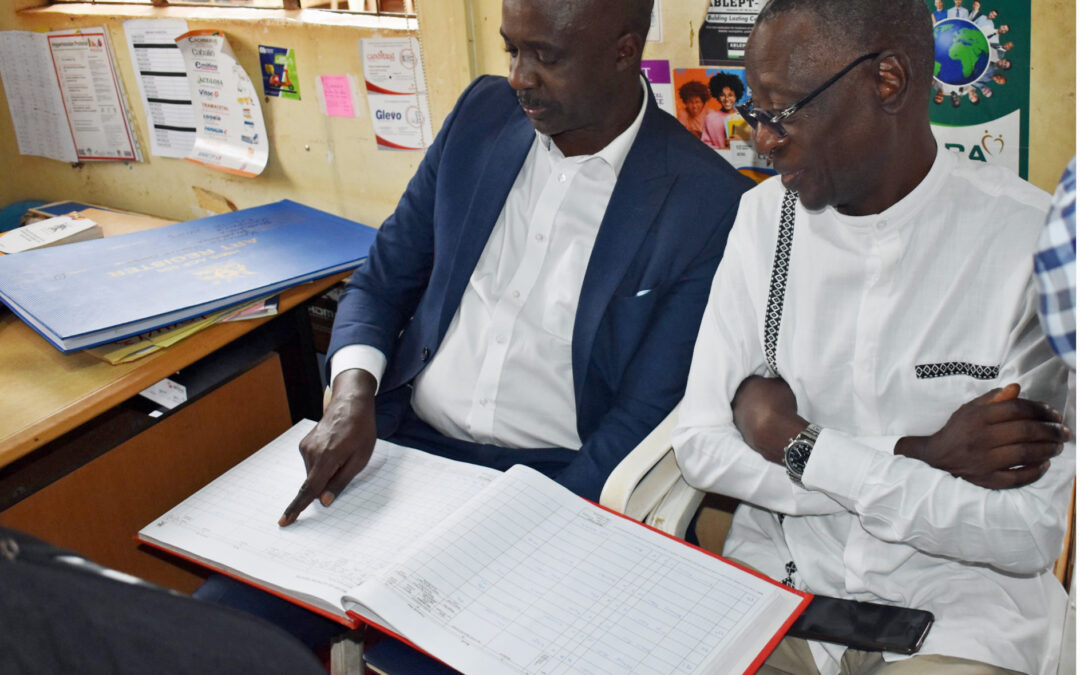Dr. Gerald Mutungi (left) and Dr. Stephen Watiti (right) review a register to assess the extent of blood pressure screening at the Kawala Health Center III in Kampala, Uganda. (PHOTO: Courtesy of PULESA).
Dr. Gerald Mutungi, commissioner for non-communicable diseases (NCDs) at the Uganda Ministry of Health and Kampala Capital City Authority official Dr. Chris Oundo visited two PULESA Uganda study clinics in Kampala recently to witness how they are integrating hypertension services with HIV care. They were joined by study investigators Dr. Martin Muddu and Dr. Isaac Sinnabulya and Dr. Stephen Watiti (community advisory board representative). The team was welcomed by enthusiastic clinic administrators who were happy to show them the blood-pressure monitoring devices and anti-hypertensive medicines supplied by the PULESA project. PULESA also provided capacity building support, training clinic staff to provide evidence-based hypertension services.
Catherine Nsubuga, the administrator in charge of Komamboga Health Center III in Kampala, asked if similar support could be extended to include persons living with hypertension without HIV. She also shared that rates of people living with both HIV and diabetes are on the rise, explaining the significant burden of diabetes and the financial challenges faced by many patients in accessing care. She asked if the PULESA team would consider extending integrated care to include diabetes management.
During his visit to Kawala Kawala Health Center III, Dr. Mutungi was welcomed by Dr. Mark Muhumuza, who expressed gratitude to the PULESA team, noting that over 90% of people over the age of 18 living with HIV are screened for hypertension and other NCDs at their clinic, with the majority of those with abnormal blood pressures being initiated on treatment.
Dr. Mutungi urged the outpatient clinic staff and facility manager to learn from the HIV clinic team and to conduct hypertension and diabetes screening among all their patients, emphasizing the importance of providing quality care for NCDs through routine monitoring and quality improvement initiatives.
He commended the PULESA team for their efforts and reiterated the Ministry’s commitment to improving care for NCDs, explaining that the PULESA study would provide the much-needed information for scaling up integrated NCD and HIV care across all clinics in Uganda.
Shared by John Baptist Kiggundu.
HLB-SIMPLe is funded by the Center for Translation Research and Implementation Science at the National Heart, Lung, and Blood Institute (NHLBI) and the Fogarty International Center at the US National Institutes of Health (NIH). The PULESA grant is UH3-HL-154501 and the RCC (which funds this website) is U24-HL-154426.

